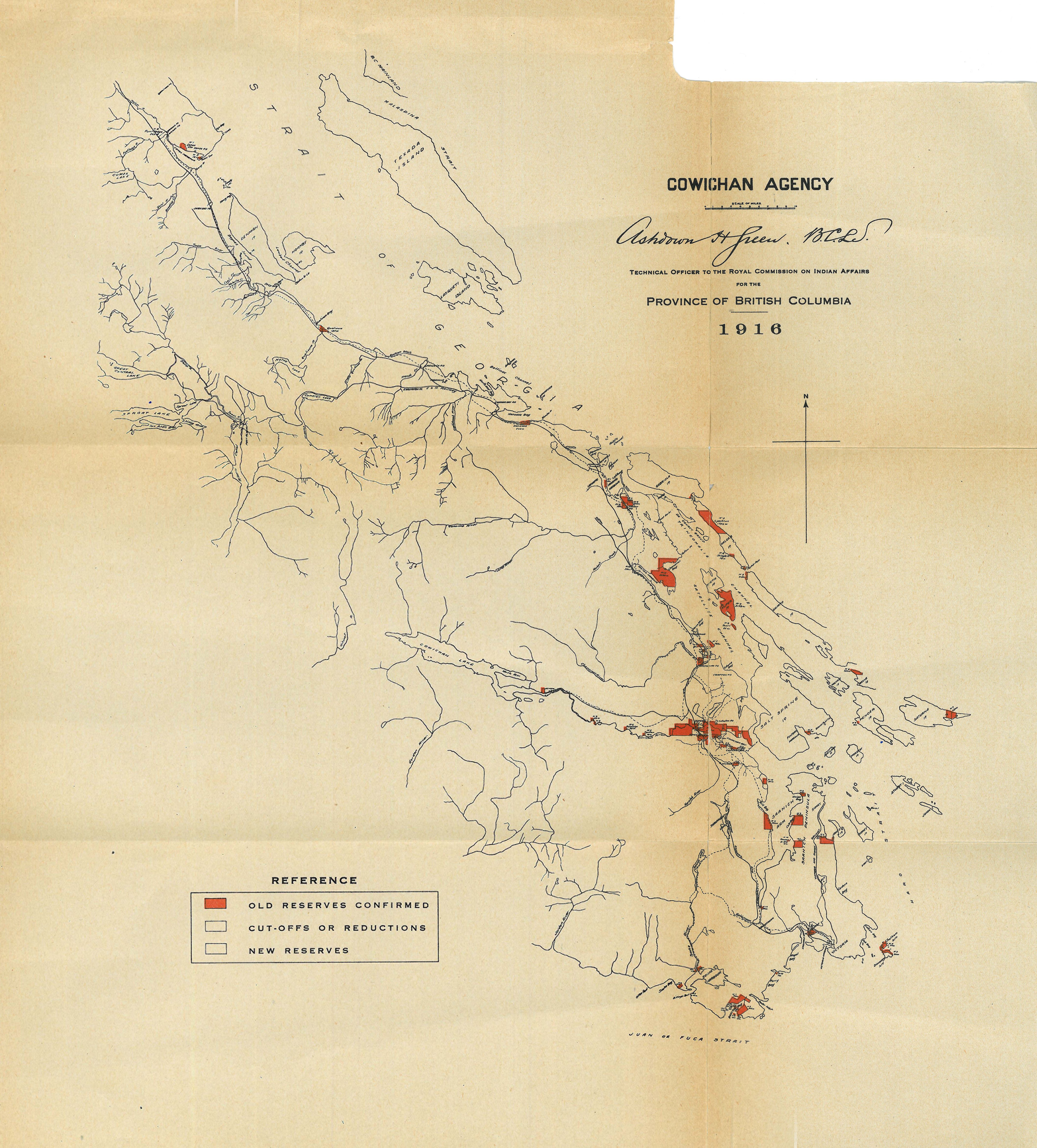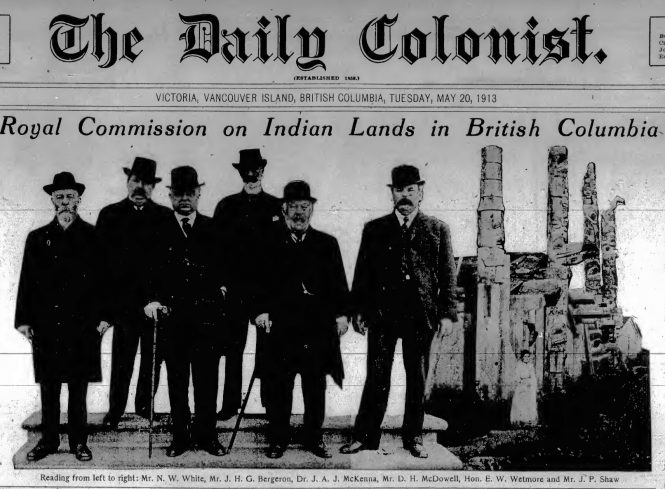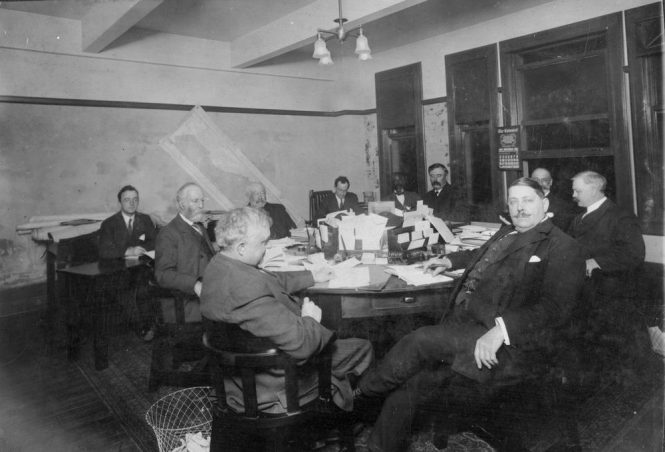“All the Indians wanted, he said, was justice. The lands still belonged to them, as did all it possessed.” -Chief Bill Qatlateselock, Quamichan

The Royal Commission on Indian Affairs in British Columbia or McKenna McBride Commission was established in 1911 to to address the contest of dominion over land and it’s use between the Province of British Columbia and the Dominion. The concerns of Indigenous Nations fuelled the debate over which government had authority over land. Central to the debate was the unlawful appropriation of reserve land by the Province and settler encroachment on land that belonged to Indigenous Nations.
Within the question of land ownership contained concerns brought forward by Indigenous community members included rights like: fishing, trapping, hunting as well as land resource use rights (timber, water and minerals). Additionally concerns include inadequate health and education services for Indigenous community members.
The McKenna McBride Agreement (1913) charged Commissioners to obtain testimonies and evidence from government and community members. Final analysis by Commission Members would be used to recommend Indian reserve sizes.
Unequal Representation:
The commission was comprised of four Commissioners from Provincial and Dominion governments. There was no Indigenous representation because the government refused to recognize the Indian Rights Association as the representative body for Indigenous Nations. This fostered an environment of distrust in colonial authorities from its commencement.
A letter published in the Cowichan Leader June 13, 1917 featuring correspondence from C.M. Tate, Secretary of the Indian Rights Association echoes this sentiment. Tate wrote, “whereas the Indians are not represented on said Commission hence it cannot be otherwise than biased.”
Testimony given from Chief Louis Good for Nanaimo represented his community when he said:
“my people do not understand much about this acreage for each man….they are afraid lest their information may not be correct… If a surveyor was sent round afterwards, and found there was any difference, they might be blamed for not having given the correct [information].”
Click here to learn more about the Vancouver Island Hearings.


